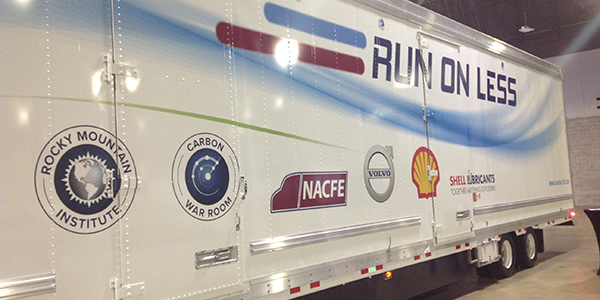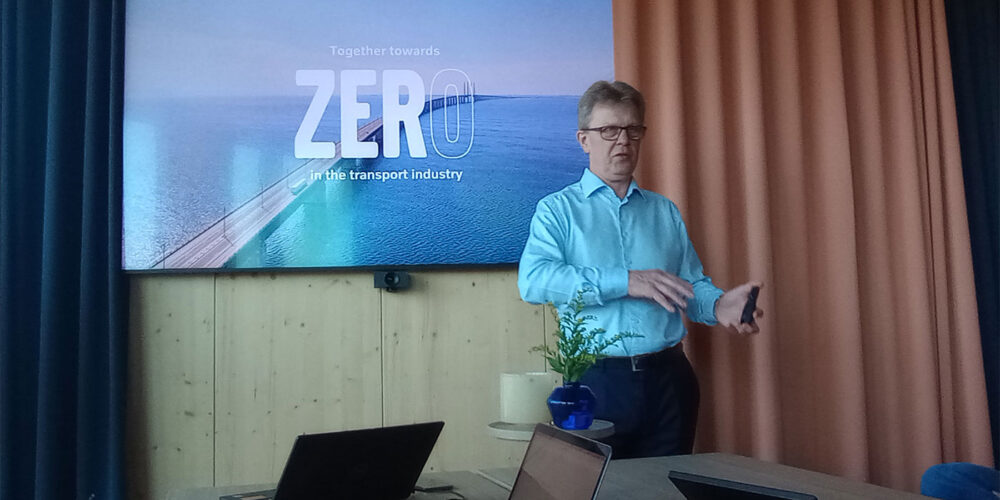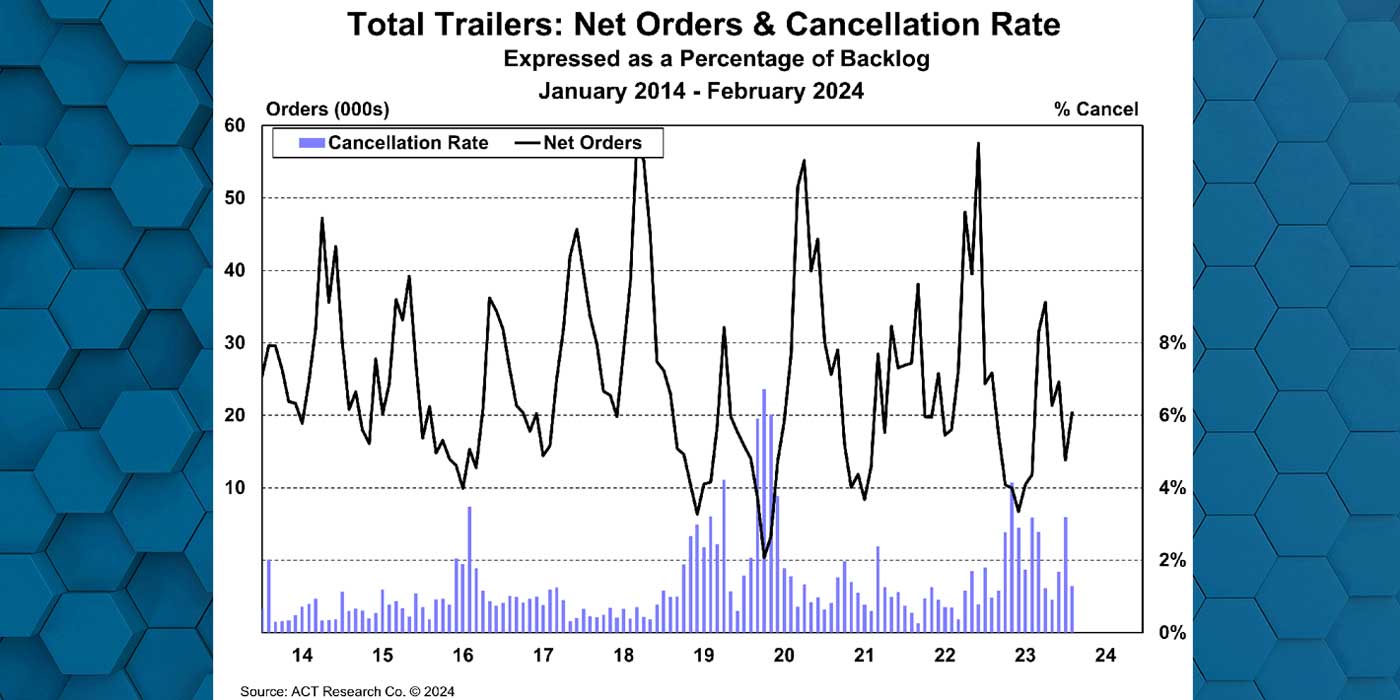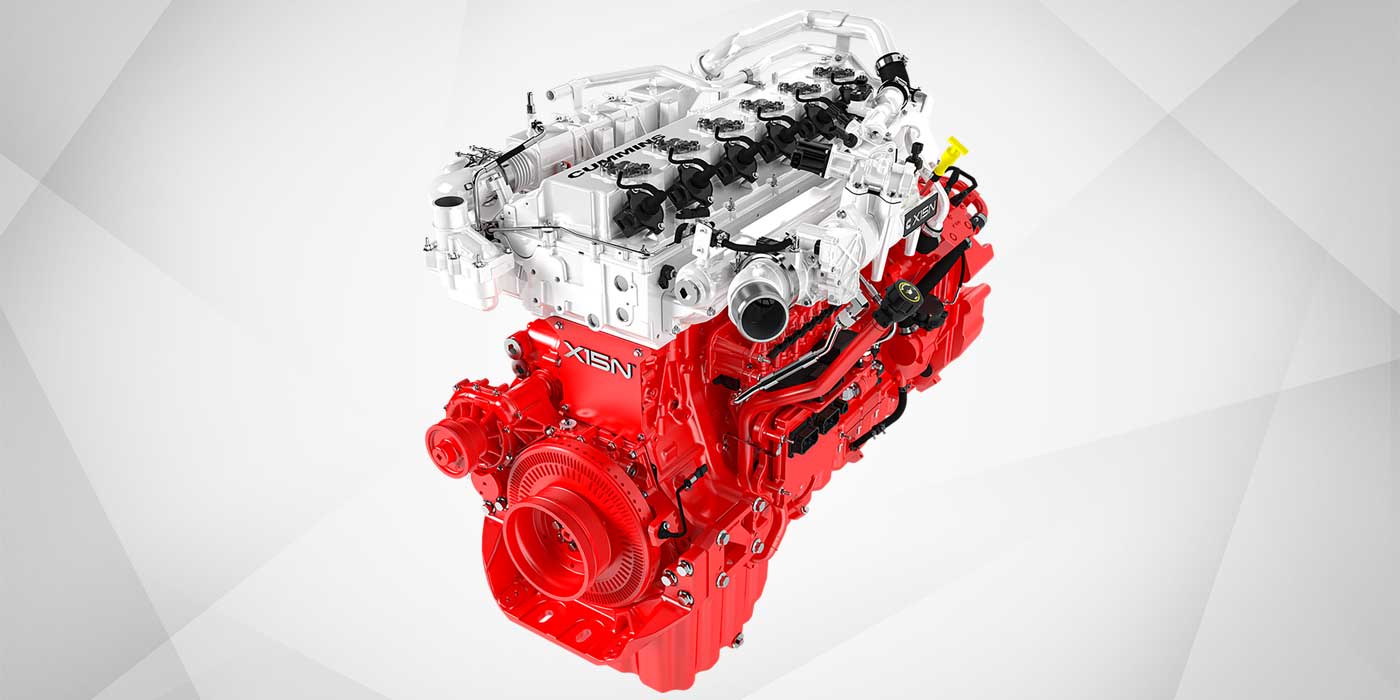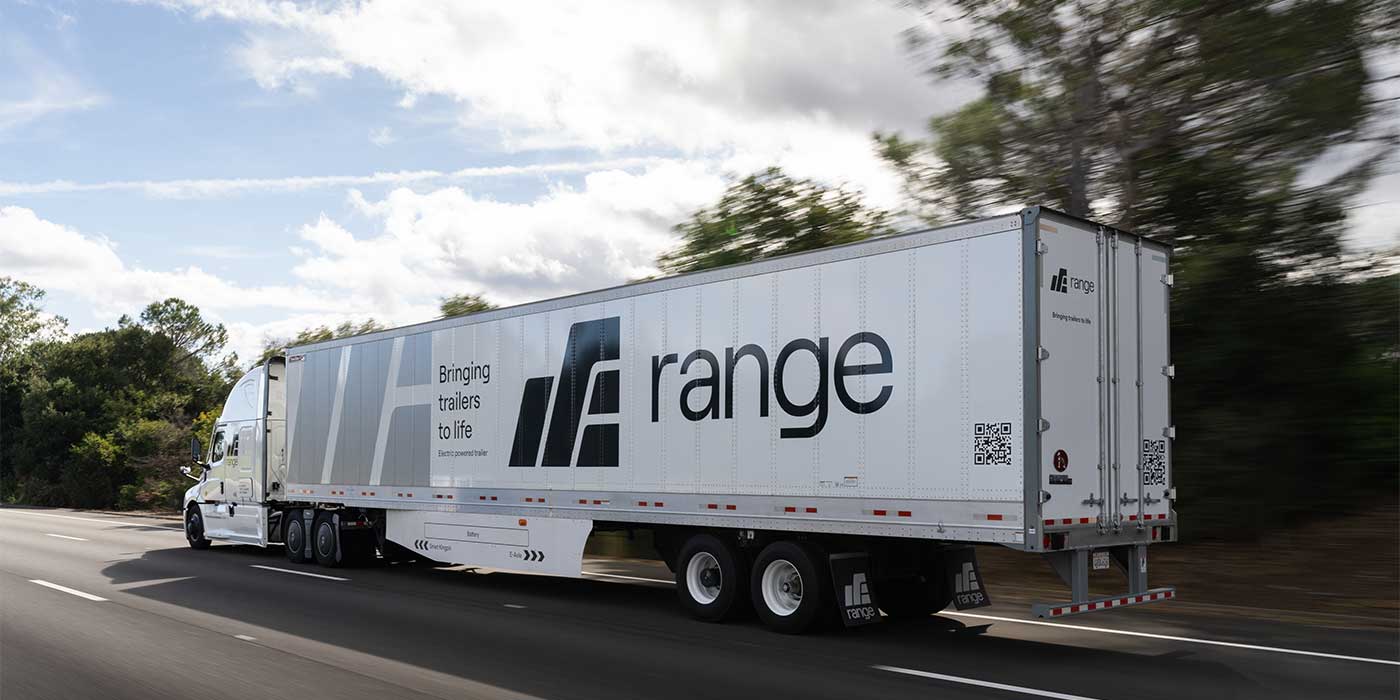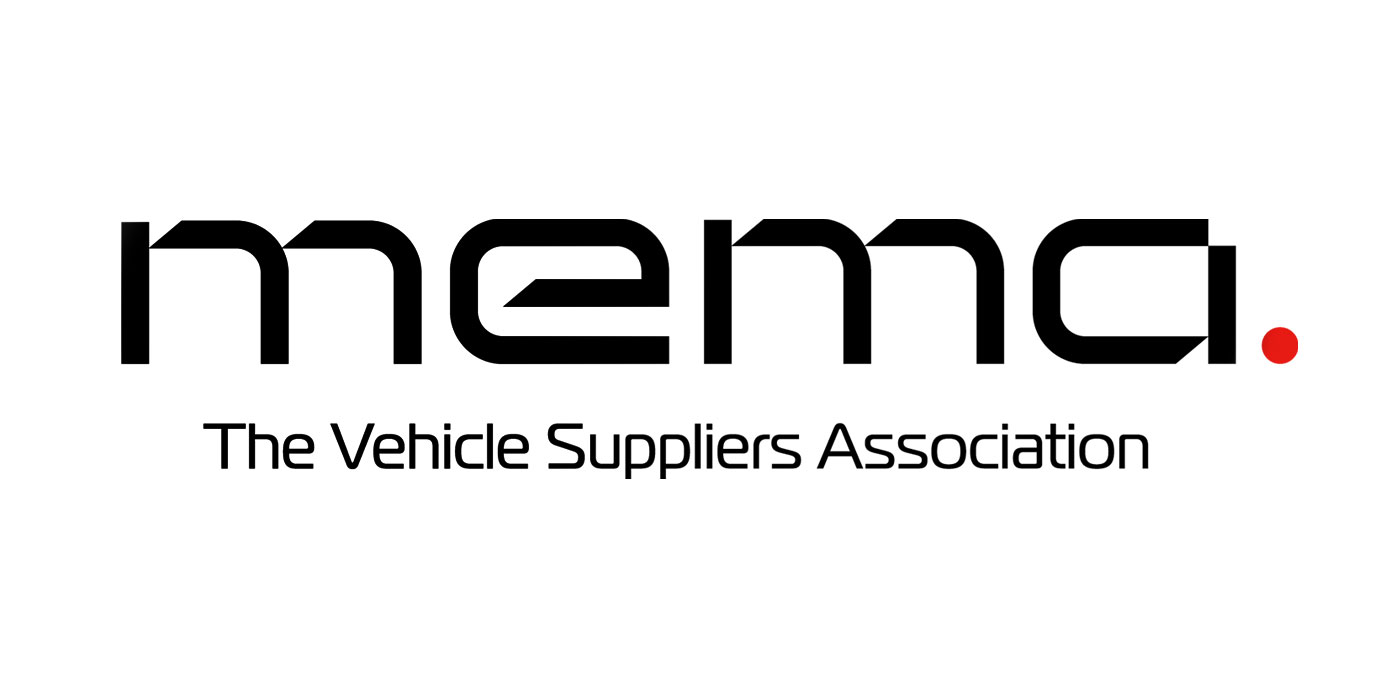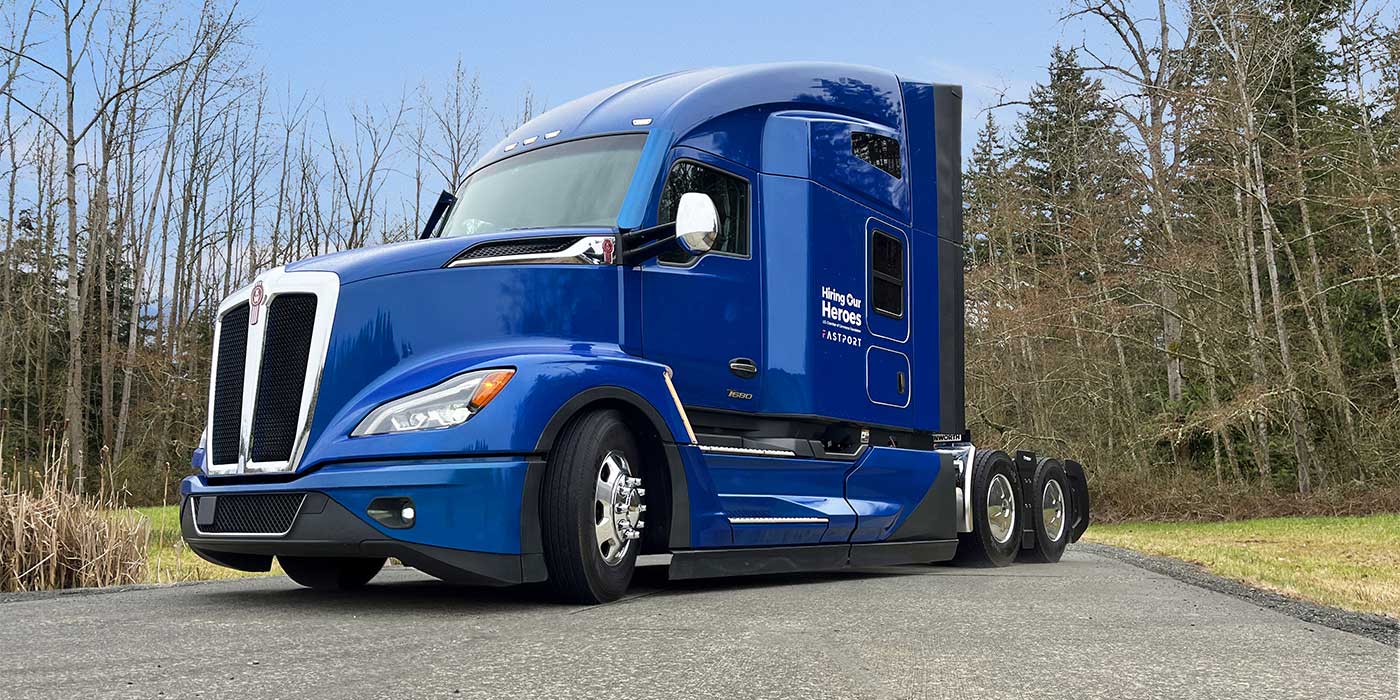Run on Less, a cross-country road show to showcase fuel efficient truck technology and equipment, announced an average of more than 10 MPG in real world conditions hauling real world freight. The seven participating trucks drove a combined 50,107 miles during the seventeen day event which kicked off on September 6. They achieved a cumulative average of 10.1 MPG during 99 days of driving.
The trucks—from fleets Albert Transport, PepsiCo’s Frito-Lay Division, Hirschbach, Mesilla Valley Transportation, Nussbaum Transportation, Ploger Transportation, and US Xpress—saved 2,877 gal of fuel and $7,193 against the national average of 6.4 MPG. Of the 99 days, the highest MPG achieved was 12.8, and three different trucks had days over 12.5 MPG. The lowest MPG from a truck was 7.1 MPG on one of the days, and the average for all lowest MPGs throughout the Run was 8.8 MPG.
The average gross combination weight over the Run was 55,498 lbs, with 31 of the 99 days over 65,000 lbs. Wind was monitored along each truck’s route using OpenWeatherMap.org and it varied from a 6.8 MPG average headwind to a 7.6 MPH tailwind. All truckers dealt with hurricanes Harvey or Irma. Average vehicle speed was 54 MPG and elevation gain was tracked for each route. One day, a truck travelled 3,270 ft. of elevation gain with 72,960 gross combination weight and experienced an average 2.7 MPH headwind and still achieved 9.7 MPG.
The seven trucks have some similar specifications, but all have differences, demonstrating there are many different combinations of technologies that can achieve high levels of mpg. Complete results can be found at runonless.com.
“These results are impressive and show what can be achieved with today’s available technologies, and what happens when you focus your efforts around getting total engagement from the entire stakeholder value chain”, said Scott Perry, Chief Technology & Procurement Officer, Ryder Global Fleet Management Solutions and NACFE Chairman.
The seven trucks—three Freightliners, two Internationals, and two Volvos—piloted by experienced drivers—Henry Albert, Bradley Long, Tommy Revell, Roberto Sandoval, Joel Morrow, Clark Reed, and Mark Risien—traversed much of the country and faced many challenges such as high winds associated with Hurricane Irma, elevations, congestion, and heavy loads. Using a variety of commercially available technologies, including 6×2 axles, trailer and tractor aerodynamics, engine accessories, tire pressure systems, automated transmissions, low viscosity oils and others, they demonstrated that it is possible to save fuel in real world operations.
“It will take collaboration among energy suppliers, lubricants producers and fuel retailers like Shell, vehicle manufacturers, fleet owners, businesses and other organizations to work together to consistently achieve the impressive fuel economy and CO2 reduction results these seven drivers accomplished during the Run,” said Annie Peter, fleet sector marketing manager, Shell Lubricants. “We are continually striving for more advanced technology, such as our low viscosity lubricants, to help reduce the loss of energy through friction, improve overall engine efficiency, and actively reduce emissions from combustion.”
“We are so proud of Tommy Revell who drove on behalf of Frito-Lay, and all of the participating fleets and drivers for their contributions to this effort,” said Mike O’Connell, senior director, supply chain, PepsiCo. “Run on Less demonstrated what can be accomplished when our industry comes together and combines readily available technologies with experienced drivers who leverage smart driving skills regardless of road and weather conditions. Now more than ever, it’s so critical that we improve the fuel economy of our fleets as a way to meet sustainability goals and ultimately improve the bottom line for our respective organizations.”
The results exceeded the original 9 MPG goal set by hosts Carbon War Room (CWR) and the North American Council for Freight Efficiency (NACFE). If the 1.7 million trucks on North American highways today achieved the same level of efficiency as the trucks in the Run, they would save 9.7 billion gallons of diesel fuel, $24.3 billion and 98 million tons of CO2 each year, according to NACFE.

